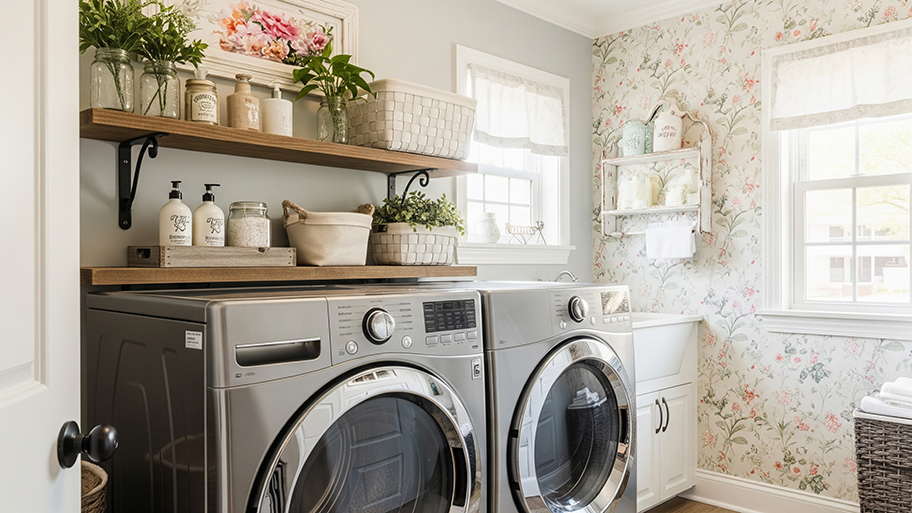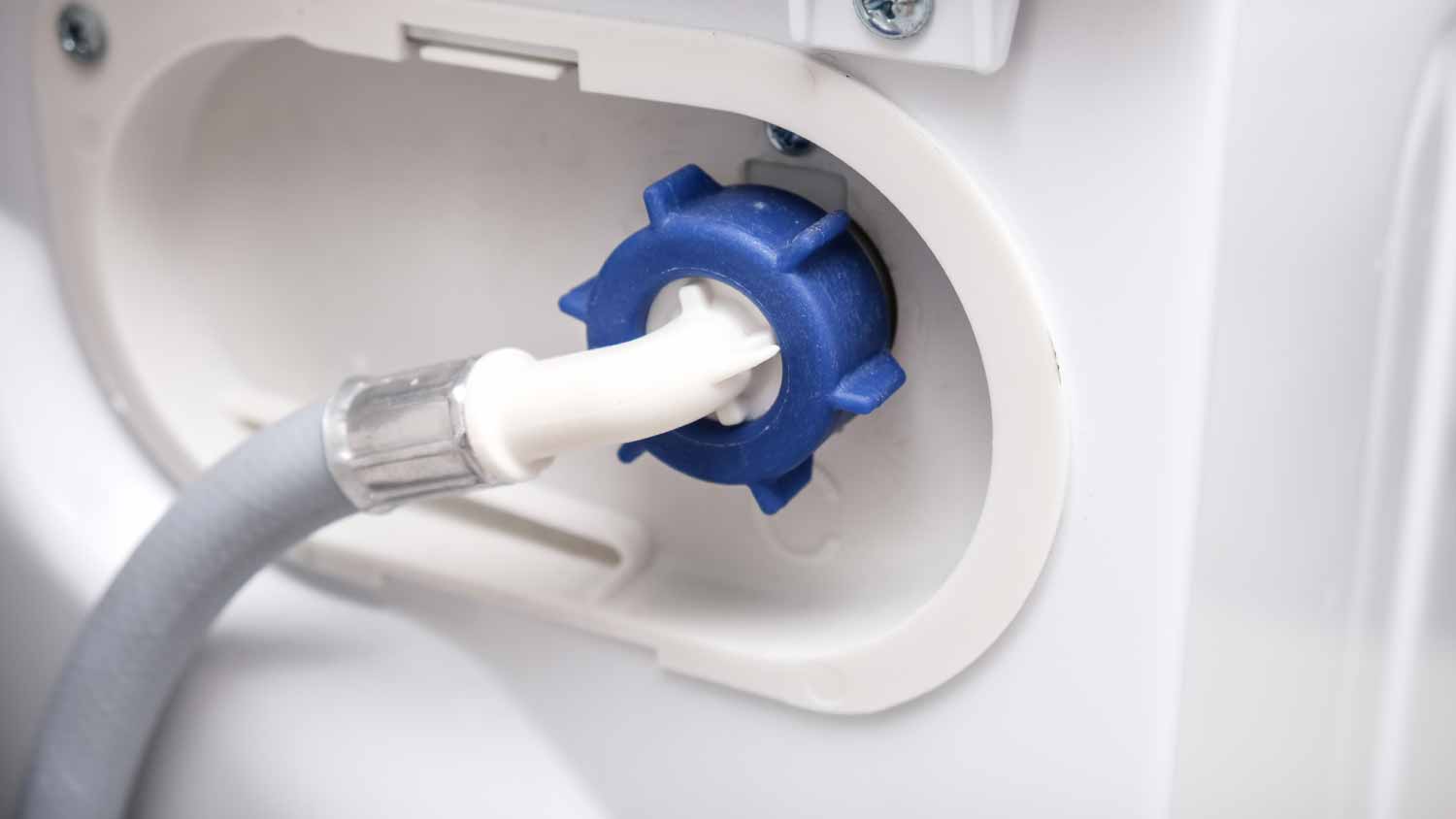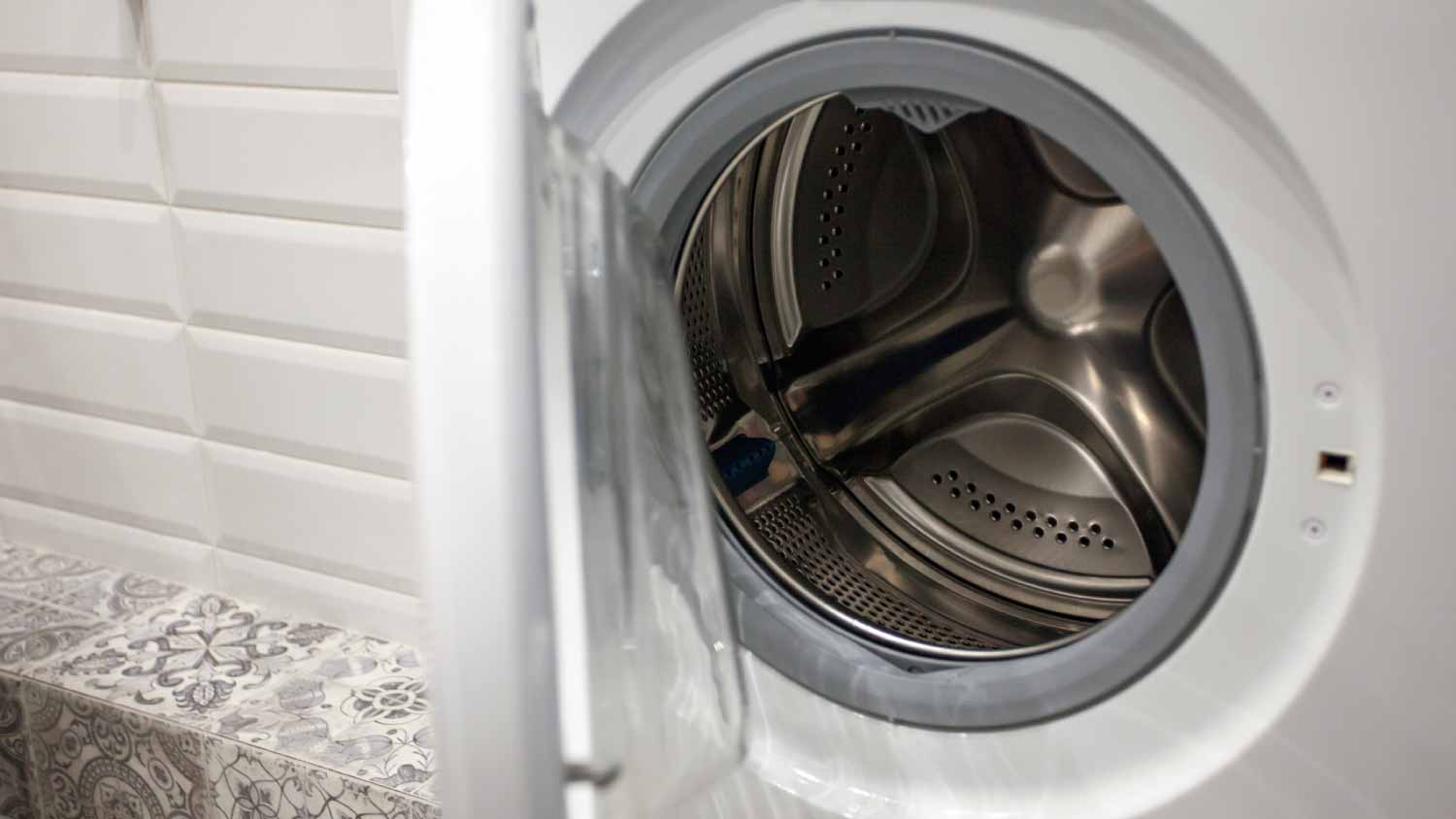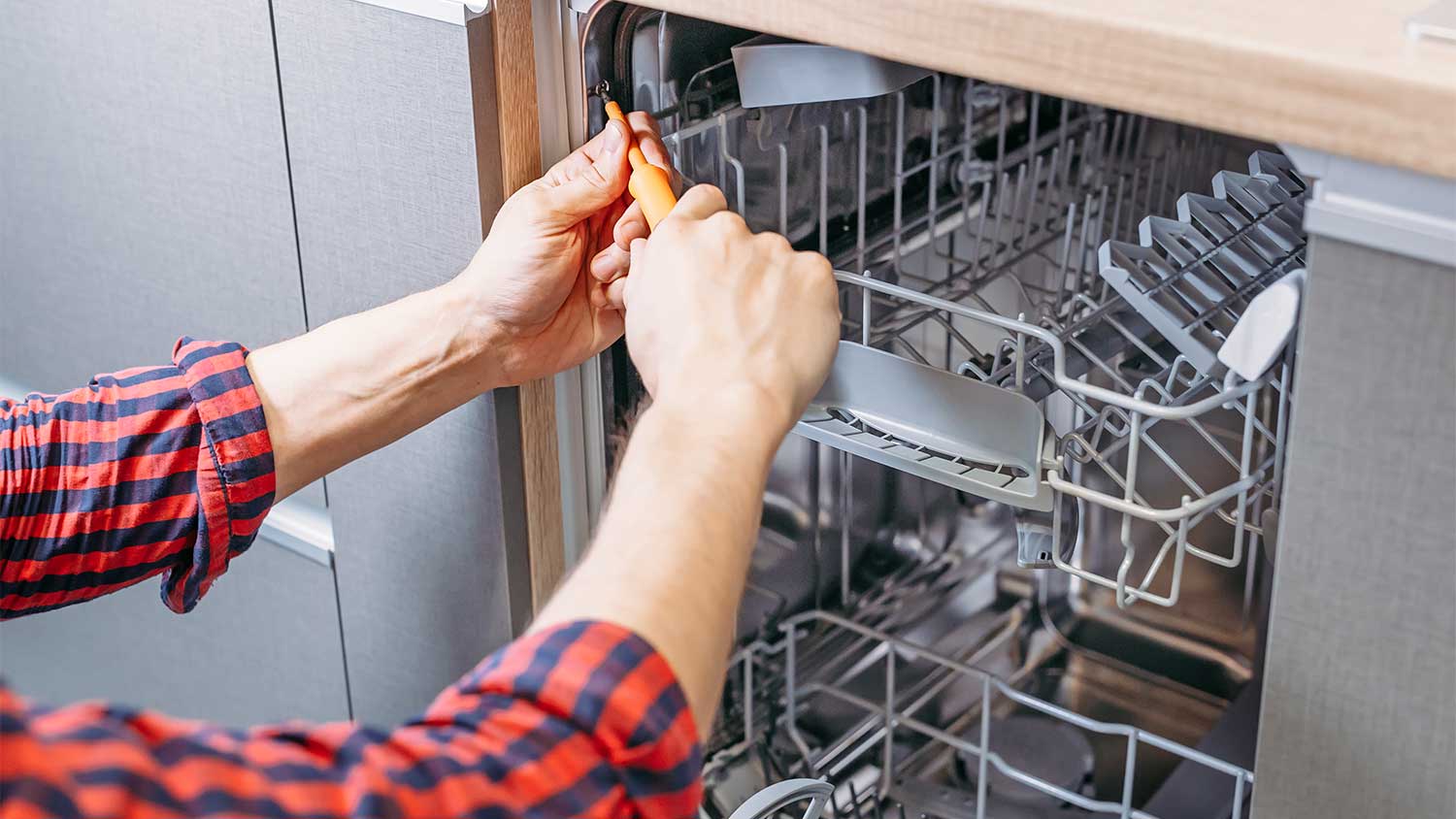
The cost to relocate washer and dryer hookups varies based on location, as well as whether your moving the appliances and adding new hookups. We’ve compiled a full price breakdown here.
Here’s how to tell if your appliance is all washed up
.jpg)
.jpg)
A blocked drain or leaky connection hose are often to blame for a wash machine flooding problem.
Failure of the water sensor, drain pump, inlet valve, or motherboard could also lead to flooding.
Washing machine repairs cost between $125 and $450 on average.
Why is my wash machine flooding when on hot water? Regardless of the type of washing machine you have, this problem can pop up when you least expect it. Sometimes, there’s a simple fix, while other times, repair work is necessary. Here's how to know when to call a pro for help.
Often, the source of the problem is an issue with the drain and not necessarily the wash machine itself. Whether your washer drains into a basin, sink, floor drain, or wall drain, if debris clogs the discharge water's route to your home's sewer system, flooding is the normal result.
The solution for a blocked drain depends on how your washing machine drains. If it drains into a sink or basin, you can often identify the clog as an obstruction at the sink's drain. Simply removing the blockage—laundry lint or a foreign object are common culprits—is usually enough to get water flowing freely again.
If the drain clog is in a floor or wall drain, you'll likely need a plumbing snake to remedy the issue. Many homeowners skip the DIY on this one and call a local drain cleaning service to handle the situation.

Your washing machine connects to your home's plumbing supply through flexible hoses. These hoses don't last forever and can get loose over time. This can cause dripping or outright flooding. Because hot water is more corrosive than cold, flooding from the hot water hose connection is more common than flooding from the cold side.
If your washing machine is brand new and you experience a flooding situation, the first thing to check is the hose installation. Improper installation or tightening is a common cause. This is also the first place to check if your water connection hoses are older than five years.
Check the rear of the machine and the location where the hoses meet your home's plumbing for signs of leaks or drips. Tightening or replacing the hoses is a relatively simple DIY project, or you can contact a pro for their replacement.
Putting too many articles of clothing or overly bulky items in your washing machine can cause a couple of different problems. While shaking or vibrating is one concern, the bigger problem is the potential for blocking the internal drain. When your machine tries to drain the wash or rinse water, it has no place to go.
The easy answer to this problem is to wash fewer clothes at one time. However, that's not always practical when it comes to bulky items that need cleaning. The best way to wash the items is to balance or spread out the load as evenly as possible. Then, monitor the machine during the draining cycles to catch any problems before the floor gets wet.

A common problem with front load washers versus top load ones happens at the door of the appliance. Because water is in direct contact with the door of front loading machines, if the door seal fails, deteriorates, or is out of alignment with the machine's body, flooding can happen.
If you have a front loading washing machine, make inspecting the door seal part of your laundry routine. Take a quick look to see that everything looks normal before washing a load. If you experience a flooding situation from a failed door seal, replacing the part is really the only way to fix it.
Washing machines are far more complex than the corrugated washboards of a hundred years ago. With so many moving and electronic washing machine parts to keep in good working order, it's no surprise that a failure in one of the water-managing components can cause flooding.
Failed parts or mechanical failure usually require professional repair, especially on modern units. In a flooding situation, the water sensor, drain pump, inlet valve, or motherboard could be to blame. Washing machine repairs cost between $125 and $450 on average, which is far less costly than repairing significant water damage.
DIY washing machine repair is possible, especially if the flooding problem stems from a blocked sink drain or leaky connection hoses. However, fixing more complex problems in modern appliances requires specialized knowledge and, sometimes, special tools. In these cases, most homeowners simply call a local washing machine repair specialist to tackle the issue.
From average costs to expert advice, get all the answers you need to get your job done.

The cost to relocate washer and dryer hookups varies based on location, as well as whether your moving the appliances and adding new hookups. We’ve compiled a full price breakdown here.

Get expert insights on dishwasher repair cost, including average prices, key cost factors, and tips to save money on repairs.

Garbage disposals last five to 10 years, and replacement is preferred over repairs. Here’s everything you need to know about replacing your garbage disposal.

Overwhelmed with dishwasher options? Learn about the different types of dishwashers to increase efficiency and space in your kitchen.

Looking to extend the life and increase the efficiency of your dishwasher? Learn how to clean a dishwasher drain to enjoy a clean, dry load every time.

Learning how to remove an oven door makes it easier to clean or repair it. Follow these steps to remove your oven door without damaging it.